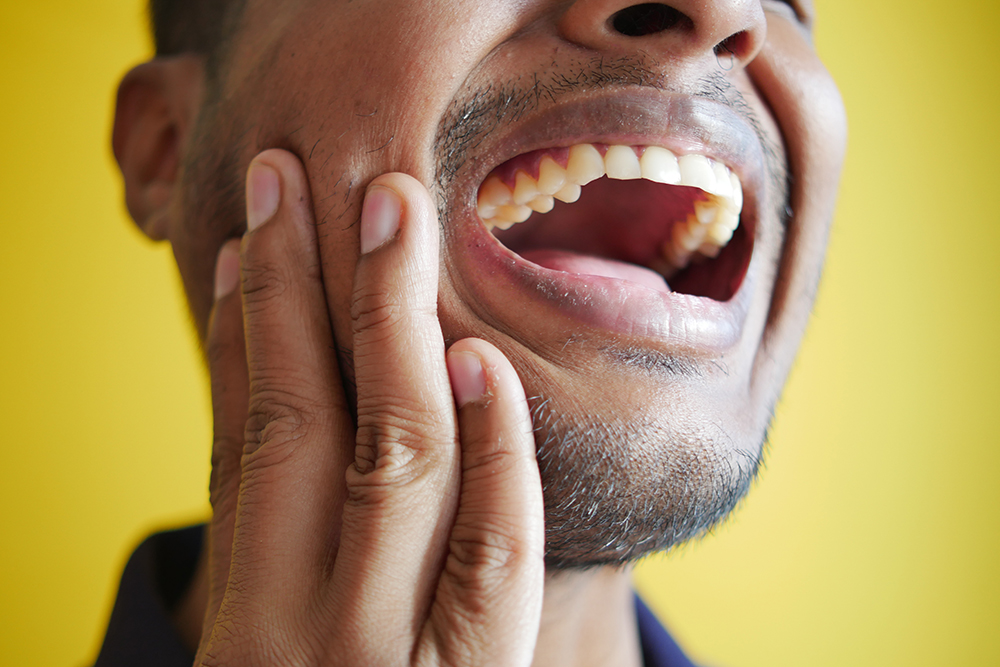Contents
It can be frustrating when you can’t eat your snack or laugh at a joke without wincing in pain. It can also be annoying to hear a ringing in your ears that doesn’t seem to be going away. Experiencing both at the same time can ruin your day.
TMJ dysfunction, or TMJD, is a common issue, but so is tinnitus. If you’ve been dealing with them both, you’re probably wondering about whether they are connected. The answer is possibly, as tinnitus is often a symptom of TMJ disorder. But the opposite isn’t true, as tinnitus doesn’t cause TMJD. By learning about their connection, you can determine the best ways to treat them both.
We’ll talk about the basics of TMJ dysfunction and tinnitus, how they’re connected, and what you can do to treat the issues.
What you need to know about TMJ dysfunction and tinnitus
Before we talk about how the two conditions affect each other, we’ll talk about them individually.
TMJ dysfunction, or TMJD, is a group of more than 30 disorders that causes pain and dysfunction of the sliding hinge joint that connects your skull to your jawbone, known as the temporomandibular joint. TMJD is the second most common type of musculoskeletal pain, following close behind lower back pain. The prevalence rate is up to 12%.
We’ve already mentioned that tinnitus is a symptom of TMJ dysfunction, but other TMJD symptoms include jaw stiffness, headaches and locking of the jaw.
Tinnitus refers to a buzzing or ringing sound in your ear that isn’t heard by anyone else or caused by an external source. It can range in volume from a barely audible, soft sound to being so loud that it’s hard to hear anything else around you. It may lead to issues with concentration and sleeping patterns.
How TMJ dysfunction and tinnitus are connected
Tinnitus has been determined to be a possible TMJD symptom because people who have TMJ dysfunction are more likely to experience ringing or buzzing. Research shows that tinnitus affects 60% of patients with TMJ disorders as opposed to 15% to 30% of those without TMJD.
It’s important to note that tinnitus can also occur naturally due to aging as you lose your hearing. However, tinnitus that stems from TMJD tends to be seen more in younger people.
While research hasn’t been able to pinpoint an exact reason why tinnitus and TMJ dysfunction are connected, there have been a few theories, including:
- If the chewing muscles near the others in your middle ear aren’t properly functioning, you may experience tinnitus.
- A ligament of the hearing bones in your middle ear may be directly connected to those attached to the jaw. If the ligament becomes overstretched or inflamed, it may lead to tinnitus.
- The parts of your brain that are involved in sound interpretation and hearing are likely connected to the nerve supply in the temporomandibular joint.
How to treat TMJ and tinnitus
Since tinnitus can be a symptom of TMJD, it’s important to treat the source of the issue to alleviate the effects that come from it. There are many ways that you can improve the dysfunction of your temporomandibular joint. Some treatments can be completed at home while others will require the assistance of a health care professional, such as a physician or physical therapist.
Here are some treatment options that can help alleviate TMJ dysfunction symptoms, including tinnitus:
- Pain medication — Ask your health care provider about taking nonsteroidal anti-inflammatory drugs, or NSAIDs, for temporary pain relief and reduced inflammation from TMJD. They may prescribe a muscle relaxer as well.
- Oral splint — An oral splint is a common tool for alleviating TMJ issues. It works to stabilize the joint and affected muscles to improve their function. Your physician or physical therapist can provide you with recommendations for the right oral splint.
- Jaw exercises and stretches — A physical therapist can walk you through safe and effective exercises to strengthen the muscles surrounding the TMJ to improve its function. They can also show you stretches to help restore your jaw’s range of motion.
Lattimore Physical Therapy can help treat both your TMJ and tinnitus
If you’ve been wondering if issues with your ear and jaw could be affecting one another, it’s important to remember that everything in your body is connected. That’s why it’s common to experience issues in your ear, such as tinnitus, that stem from your jaw dysfunction.
At Lattimore, we ensure that we focus on the root of your issue to alleviate the symptoms that contribute to your discomfort, which often goes beyond the site of the pain.
Contact our team today for more information or to schedule an initial appointment.



